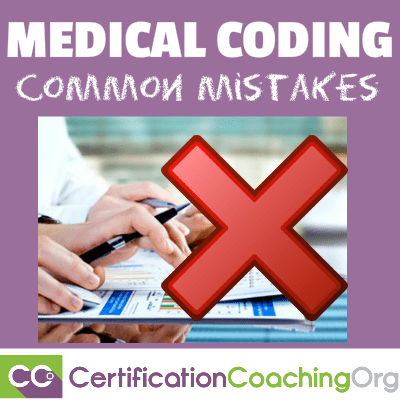Physicians today face shrinking reimbursements and increased scrutiny of their coding practices. The typical family medicine practice generates the majority of its revenue by submitting CPT and ICD-9 codes to third-party payers. In physician-owned practices, lost revenue opportunities affect physician income directly. For employed physicians, the effect is less apparent but no less real. In this case, reduced revenue can mean decreases in the number of support staff, limitations on supplies and equipment – and, yes, shrinking physician bonuses and compensation.
Coding accurately for what you do is essential. The best coding staff and the latest electronic health record system (EHR) cannot substitute for physician involvement in the coding and documentation process. Who knows better than you what care you provide? Source: http://www.aafp.org/fpm/2011/0300/p31.html
It’s time to take a close look at your coding habits to see if you are missing revenue opportunities. You can start by reviewing and correcting the following five common medical coding mistakes and best ways you can avoid them:
2. Randomly using modifiers
3. Failing to link CPT and ICD-9 codes
Physician services are paid based on the fee levels associated with CPT codes. But payers deny claims based on diagnosis codes if the diagnosis does not support the medical necessity of the service or is not a covered indication for that service. Clinicians need to match the diagnosis code to the correct CPT code. This is particularly important for diagnostic tests and some Medicare preventive medicine services. Source: http://gettingpaid.kareo.com/gettingpaid/2011/05/the-ten-biggest-coding-mistakes-in-medical-billing-and-how-to-avoid-them/
4. Missed charges
Busy practices can easily miss capturing charges for many of the services they provide. Lab and other ancillary services are the ones most often missed, simply because the order may be verbally communicated to clinical or lab personnel. To remedy this, the laboratory technician should maintain a central log of all the laboratory services performed. This gives staff a contingency method for capturing charges and the opportunity to identify those physicians prone to missing charges.
Injections are another area where charge capture errors tend to occur. If your practice is administering injections and providing the injectable medications, you should be reporting two codes – one for the administration and one for the medication. The HCPCS codes for the medications include the name and the dosage for each unit of service. Be sure your staff members understand how to determine the correct number of units to report. Make sure common conversions and drug calculation tables are available to assist staff with this.
Finally, don’t forget hospital and nursing facility services. Most practices receive patient encounter information from the hospital only for those patients admitted by the practice. Failure to report an encounter in the emergency department is a sure way to miss getting reimbursed for the service. Be sure your super-bills make it easy for physicians to capture services based in the hospital and nursing facility, and create a system for ensuring that all super-bills are returned to your office for billing. Source: http://www.aafp.org/fpm/2011/0300/p31.html
5. Incorrect Selection of Principal Diagnosis
Lack of enough knowledge of coding terminology and principles, or lack of considerable experience may result in incorrect selection of the principal diagnosis. Coders may tend to code a complication as a condition, a definitive diagnosis as a symptom, or assume a diagnosis without the condition’s definitive documentation. They may also code only from the discharge summary rather than the entire documentation. Such misinterpretation of coding guidelines may occur when coders do not read the encoder messages, coding references, editor’s notes and inclusion and exclusion terms carefully. To avoid this blunder, coders should stay up to date on coding guidelines and should carefully read the reference books, accompanying editor’s remarks, and the medical documentation of the patient completely. Source: http://www.slideshare.net/avontix/five-biggest-medical-coding-mistakes-you-can-avoid-avontix
Getting It Right
According to Emily Hill, president of Hill & Associates, specializing in coding and compliance, identifying and correcting coding errors in your practice can significantly affect your income. To make sure you’re on the right track, conduct a sample chart audit in your practice and report the findings to all physicians and staff. You might be surprised how simple awareness and focused education can impact your practice’s bottom line. Source: http://www.aafp.org/fpm/2011/0300/p31.html

![[CCO] Certification Coaching Organization LLC [CCO] Certification Coaching Organization LLC](https://www.cco.us/wp-content/uploads/2015/05/CCO-Logo-2015-d3-500px.png)